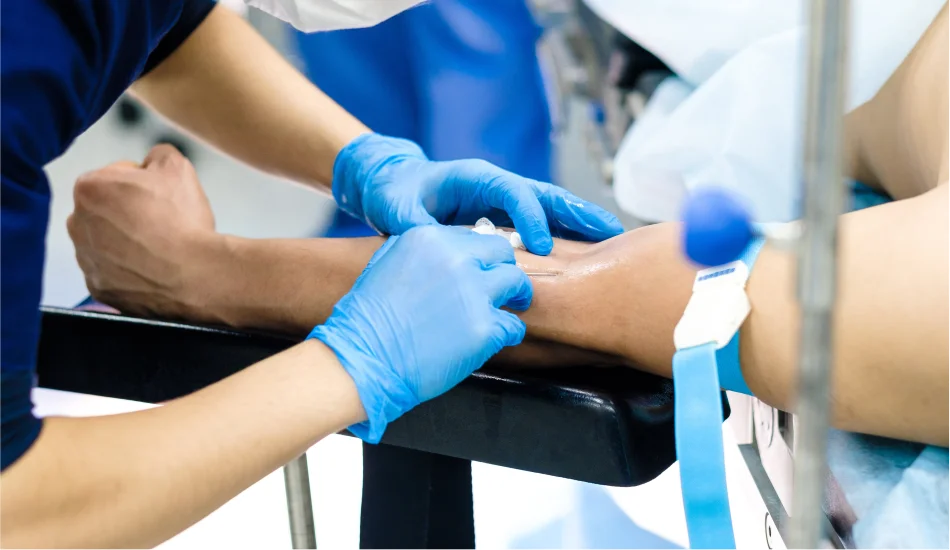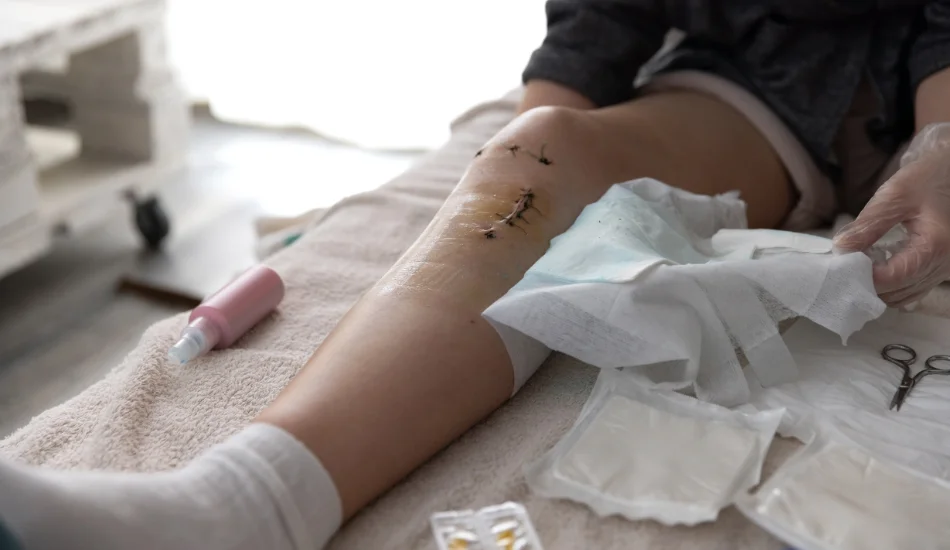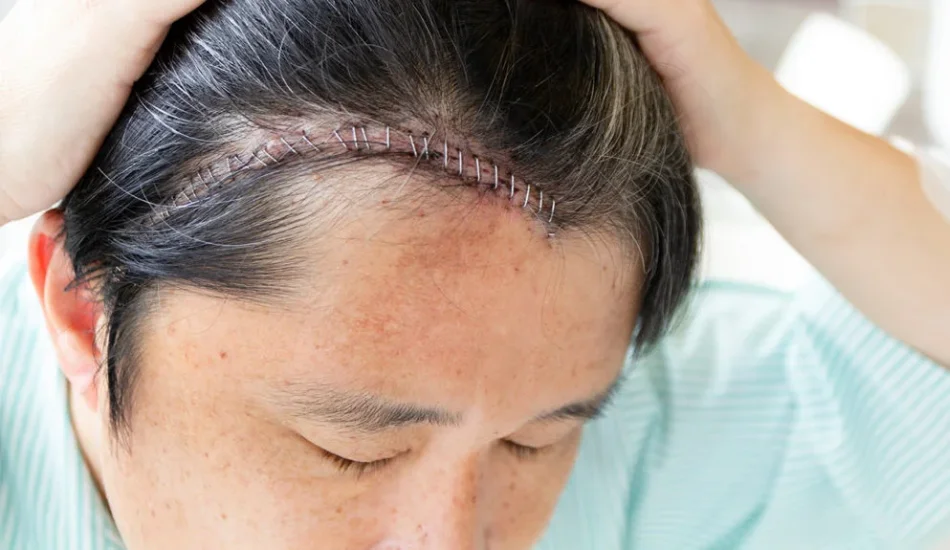
Hand surgery can be described as a special area of medicine that concentrates on diagnosing and treating ailments that affect the wrist, hand and forearm. From trauma and injuries to degenerative and congenital conditions hand surgery plays a vital part in restoring function and improving standard of living for the patients. This blog examines the various types of hand surgeries as well as the common conditions that are treated and what to expect in recuperation.
Understanding Hand Surgery
Hand surgery covers a broad array of procedures designed for solving various problems that could impact the hands as well as its complex structures. Hands are an intricate organ made up of muscles, bones ligaments, tendons, blood vessels, and nerves. Each of these elements need to work in harmony for an optimal hand functioning. If there is a problem it could significantly affect the ability of a person to complete routine tasks.
Commonly Treated Conditions that can be treated with Hand Surgery
There are a myriad of situations that require hand surgery, for example:
- Carpal Tunnel Syndrome :- The carpal tunnel is typical disorder that develops in the case that the median nerve which is the nerve that runs through the tunnel of carpals of the wrist, gets compressed. The compression may cause nerve numbness, tingling and weakness of the fingers and hands. The procedure for releasing the carpal tunnel entails cut the ligament, which covers the the carpal tunnel, to ease the pressure upon the median nerve.
- Trigger Finger :- Trigger finger, which is also referred to as stenosing tendosynovitis, happens when the tendons of the fingers get inflamed, which causes the fingers to become locked or become caught when bent. Surgery involves loosening the part of the tendon that is constricted sheath, allowing for a easy moving of the tendons.
- Dupuytren’s Contracture :- Dupuytren’s Contracture is a condition that is characterized by the thickening and shrinking of the fascia on the palm. This causes the stretching of fingers toward the palm. Surgery is intended to eliminate or cut off the thickened tissue and allow fingers to become straighter.
- Fractures and Dislocations :- Hand dislocations, fractures, and breaks could result from trauma, sports injuries or accidents. Surgery may be required to stabilize and realign the bones by using pins or screws, or plates.
- Arthritis :- Arthritis can affect joints of the hand which can cause stiffness, pain and decreased mobility. The options for treating arthritis with surgery comprise joint fusions, joint replacement or the synovectomy (removal of the joint’s lining that is inflamed).
- Tendon Injuries :- Hand tendons can be damaged due to injuries, excessive use or an accident that occurs suddenly. Tendon repair surgery seeks to reconnect or repair the tendons that have been damaged to restore their function.
- Congenital Abnormalities :- Certain people have hand abnormalities that are congenital like syndactyly (fused fingers) or polydactyly (extra fingers). Hand surgery is a way to correct these deformities, enhancing hand appearance and function.
Types of Hand Surgery
Hand surgery may be classified into a variety of types, according to the particular procedure and the purpose for which it is performed:
- Open Surgery :- The procedure involves cutting an incision into the skin to reach the area affected. This procedure is usually employed for procedures that require precise visualization of the tissues.
- Minimally Invasive Surgery :- Techniques that are minimally invasive like arthroscopy make use of small incisions and specially designed instruments to complete the procedure. This method reduces the time to recover and reduces the risk of scarring.
- Microsurgery :- Microsurgery is an extremely skilled procedure that makes utilization of a microscope as well as precise instruments to carry out delicate procedures on tiny structures like blood vessels and nerves.
- Reconstructive Surgery :- Reconstructive surgery is a procedure that aims to improve the functionality as well as appearance of hands following injuries, trauma or congenital anomalies. This could require grafts of tissue or tendon transfers. It could also involve flap surgery.
The Hand Surgery Process
The process of having hand surgery generally involves several steps:
- Consultation and Evaluation :- In the initial consultation, an expert hand surgeon will examine the patient’s medical condition, review their medical history, and then discuss the options for treatment. Diagnostic tests, like X-rays and MRI scans, can be requested to determine the severity of the issue.
- Preoperative Preparation :- Prior to surgery, patients might require preoperative tests to ensure that they are healthy enough to undergo the procedure. Guidelines on fasting, medication changes as well as lifestyle adjustments will be given.
- The Surgery :- Hand surgery is usually carried out under local and general anesthesia based on the extent of the procedure as well as the needs of the patient. The surgeon will make the required repairs or corrections with the technique chosen for surgery.
- Postoperative Care :- After the procedure, patients be given detailed information on the care of wounds as well as pain management and limits on activities. Physical therapy and rehabilitation exercises might be recommended to aid the healing process and improve function.
- Recovery and Rehabilitation :- The time to heal varies based what type of operation performed and specific aspects. Patients may require an splint or a cast to safeguard the hand in the beginning of the healing process. Rehab exercises that are gradual will aid in improving flexibility, strength as well as dexterity.
Benefits of Hand Surgery
Hand surgery can provide numerous advantages for those suffering from hand problems:
- The Pain Relieving Method :- Surgical intervention can relieve pain caused by ailments like carpal tunnel syndrome, arthritis and trigger finger.
- Better function :- Restoring hand function lets people perform everyday activities and regain their independence.
- Better quality of life :- Improved hand function and appearance can improve confidence and satisfaction.
- Preventing further Damage :- Timely surgical intervention will help to prevent further complications and injuries to the hand structures.
Conclusion
Hand surgery is a crucial medical field that treats many different ailments that affect the hand and upper extremities. For carpal tunnel disorders to more complex surgical procedures for reconstructing the hand, this field can provide solutions that improve functionality, relieve pain, and improve quality of life. If you’re suffering from weakening, pain in your hands or ailment, speaking with an expert hand surgeon can offer you the needed assistance and solutions.
The staff at Chirayu Super Speciality Hospital, our experienced team of hand surgeons is dedicated to providing exceptional medical care and customized treatment plans that are tailored to your individual needs. With modern-day facilities and a focus on the patient we are committed to helping patients achieve the best hand health and performance. Contact us today to set up a an appointment and find out more about our hands surgery procedures.



